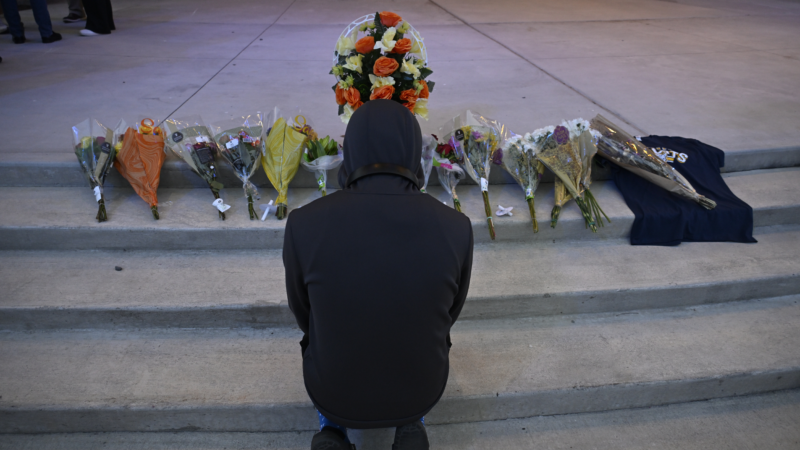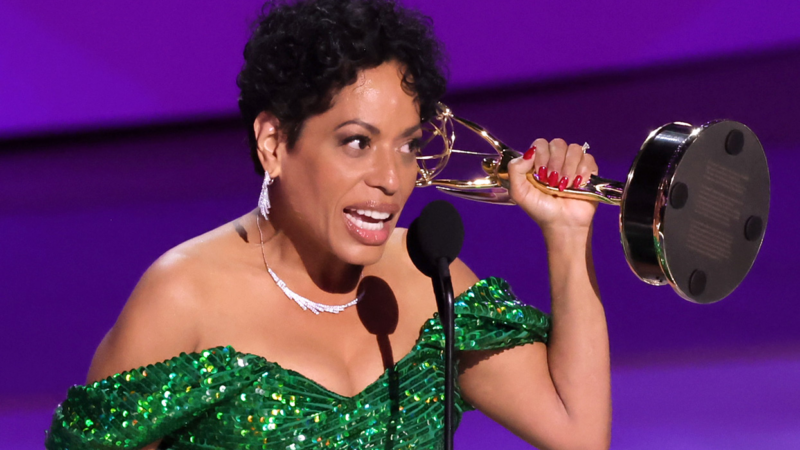What research says about preventing school shootings
Wednesday’s violence at a Georgia high school and the arrest of a 14-year-old suspect follow a familiar pattern of previous school shootings. After every one, there’s been a tendency to ask, “How do we prevent the next one?”
For years, school safety experts, and even the U.S. Secret Service, have rallied around some very clear answers. Here’s what they say.
It’s not a good idea to arm teachers
There’s broad consensus that arming teachers is not a good policy. That’s according to Matthew Mayer, a professor at Rutgers Graduate School of Education. He’s been studying school violence since before Columbine, and he’s part of a group of researchers who have published several position papers about why school shootings happen.
Mayer says arming teachers is a bad idea “because it invites numerous disasters and problems, and the chances of it actually helping are so minuscule.”
In 2018, a Gallup poll also found that most teachers do not want to carry guns in school, and overwhelmingly favor gun control measures over security steps meant to “harden” schools. When asked which specific measures would be “most effective” at preventing school shootings, 57% of teachers favored universal background checks, and the same number, 57%, also favored banning the sale of semiautomatic weapons such as the one used in the Parkland attack.
Raise age limits for gun ownership
School safety researchers support tightening age limits for gun ownership, from 18 to 21. They say 18 years old is too young to be able to buy a gun; the teenage brain is just too impulsive. And they point out that the school shooters in Parkland, Santa Fe, Newtown, Columbine and Uvalde were all under 21.
School safety researchers also support universal background checks and banning assault-style weapons. But it’s not just about how shooters legally acquire firearms. A 2019 report from the Secret Service found that in half the school shootings they studied, the gun used was either readily accessible at home or not meaningfully secured.
Of course, schools don’t have control over age limits and gun storage. But there’s a lot they can still do.
Schools can support the social and emotional needs of students
A lot of the conversation around making schools safer has centered on hardening schools by adding police officers and metal detectors. But experts say schools should actually focus on softening to support the social and emotional needs of students.
“Our first preventative strategy should be to make sure kids are respected, that they feel connected and belong in schools,” says Odis Johnson Jr., of Johns Hopkins University’s Center for Safe and Healthy Schools.
That means building kids’ skills around conflict resolution, stress management and empathy for their fellow classmates — skills that can help reduce all sorts of unwanted behaviors, including fighting and bullying.
In its report, the Secret Service found most of the school attackers they studied had been bullied.
Jackie Nowicki has led multiple school safety investigations at the U.S. Government Accountability Office. She and her team have identified some of things schools can do to make their classrooms and hallways feel safer, including “anti-bullying training for staff and teachers, adult supervision, things like hall monitors, and mechanisms to anonymously report hostile behaviors.”
The Secret Service recommends schools implement what they call a threat assessment model, where trained staff — including an administrator, a school counselor or psychologist, as well as a law enforcement representative — work together to identify and support students in crisis before they hurt others.
Earlier this year, the National Association of Secondary School Principals released new guidance for preventing school violence.
It noted that ensuring that educators, parents and students have access to mental health services is a “critical component” in preventing violence and increasing school safety. And the organization called for congressional action to provide support for those services.
This story has been updated from an earlier version published on May 26, 2022.
Live Emmys 2024: Here are the winners of TV’s biggest night
Eugene and Dan Levy are hosting the 76th Primetime Emmy Awards Sunday night. We'll be following along with the winners here.
Check out the fashion as stars arrive at the 2024 Emmys red carpet
See the stars arrive at the Primetime Emmy Awards in Los Angeles.
All Things Considered for September 15, 2024
Hear the All Things Considered program for Sep 15, 2024
Gun shots were fired near President Trump. Here’s what we know.
Transcript: SCOTT DETROW, HOST: There has been another apparent assassination attempt against former President Donald Trump. That’s according to the FBI. The incident took place at Trump International Golf Course in West Palm Beach, Fla., while Trump was on the course. Trump is safe and secure, according to his campaign. Law enforcement says a suspect […]
The latest from Springfield, Ohio
Transcript: SCOTT DETROW, HOST: Ohio Senator JD Vance is defending baseless claims he has made about Haitian immigrants eating pets in Springfield, Ohio. The Republican vice presidential nominee made the rounds on a number of morning talk shows today. Here he is on NBC’s “Meet The Press.” (SOUNDBITE OF TV SHOW, “MEET THE PRESS”) JD […]
A baker attends a festival to make the biggest whoopie pie in the world
The whoopie pie is a favorite New England desert. Since bigger is always better, a Vermont baker sets out to make the biggest whoopie pie in the world.




